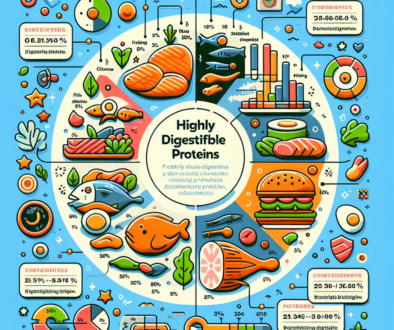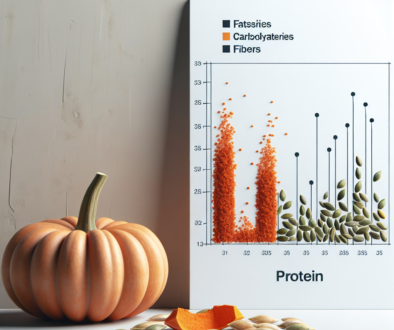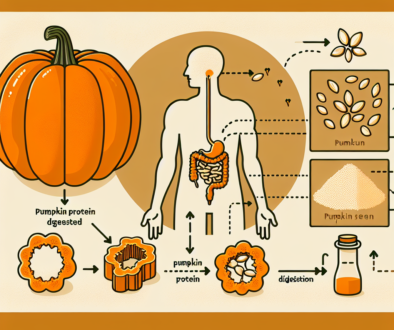Do Pumpkin Seeds Have More Protein Than Meat?
-
Table of Contents
- Pumpkin Seeds vs. Meat: A Protein Comparison
- Understanding Protein Content
- Meat: A Traditional Protein Powerhouse
- Pumpkin Seeds: A Plant-Based Protein Source
- Comparing Protein Quality: Meat vs. Pumpkin Seeds
- Nutritional Benefits Beyond Protein
- Environmental and Ethical Considerations
- Conclusion: Balancing Your Protein Sources
- Explore ETprotein’s Plant-Based Protein Products
Pumpkin Seeds vs. Meat: A Protein Comparison

When it comes to protein sources, meat has traditionally been the go-to option for many. However, with a growing interest in plant-based diets and sustainable eating, alternative protein sources are gaining popularity. Among these, pumpkin seeds have emerged as a nutritious contender. But do pumpkin seeds really have more protein than meat? This article delves into the nutritional profiles of both to provide a comprehensive answer.
Understanding Protein Content
Protein is a macronutrient essential for building and repairing tissues, making enzymes and hormones, and supporting overall health. It’s made up of amino acids, some of which are termed ‘essential’ because the body cannot produce them and they must be obtained from food.
Meat: A Traditional Protein Powerhouse
Meat, including poultry, beef, pork, and fish, is known for its high protein content. The protein in meat is considered ‘complete,’ meaning it contains all nine essential amino acids in sufficient quantities. Here’s a general breakdown of the protein content in various types of meat per 100 grams:
- Chicken breast: 31 grams
- Beef (steak): 25 grams
- Pork chop: 25 grams
- Salmon: 25 grams
These values can vary depending on the cut and cooking method, but they provide a baseline for comparison.
Pumpkin Seeds: A Plant-Based Protein Source
Pumpkin seeds, also known as pepitas, are the edible seeds of a pumpkin. They are not only rich in protein but also contain a variety of nutrients such as magnesium, zinc, and healthy fats. Per 100 grams, pumpkin seeds offer approximately:
- Protein: 30 grams
- Fiber: 6 grams
- Fat: 49 grams (predominantly healthy unsaturated fats)
While pumpkin seeds contain a significant amount of protein, it’s important to note that plant-based proteins are often ‘incomplete,’ lacking one or more essential amino acids. However, this can be easily remedied by consuming a varied diet that includes different sources of plant proteins.
Comparing Protein Quality: Meat vs. Pumpkin Seeds
When comparing the protein quality of meat and pumpkin seeds, it’s crucial to consider the concept of protein digestibility-corrected amino acid score (PDCAAS). This score evaluates the quality of a protein based on both the amino acid requirements of humans and their ability to digest it. Animal proteins typically score higher on this scale due to their completeness and digestibility.
However, recent research suggests that the PDCAAS might underestimate the value of plant-based proteins, which can be combined to form complete proteins. For example, eating pumpkin seeds along with legumes or grains can provide a full spectrum of essential amino acids.
Nutritional Benefits Beyond Protein
While protein content is a significant factor, it’s not the only nutritional aspect to consider. Pumpkin seeds offer additional health benefits:
- They are rich in antioxidants, which can help reduce inflammation and protect against disease.
- Pumpkin seeds are a good source of magnesium, which is important for bone health and energy production.
- The high fiber content in pumpkin seeds can aid digestion and promote a feeling of fullness, which is beneficial for weight management.
Meat also provides essential nutrients, such as B vitamins, iron, and zinc. However, it’s important to balance meat consumption with other foods to maintain a healthy diet.
Environmental and Ethical Considerations
Choosing between pumpkin seeds and meat isn’t just about nutrition; it also involves environmental and ethical considerations. The production of meat, especially red meat, has a significant environmental impact due to land use, water consumption, and greenhouse gas emissions. In contrast, pumpkin seeds have a much lower environmental footprint.
Furthermore, for those concerned with animal welfare, plant-based proteins like pumpkin seeds offer a cruelty-free alternative to meat.
Conclusion: Balancing Your Protein Sources
While pumpkin seeds have a protein content comparable to that of meat, they differ in terms of amino acid composition and digestibility. However, when part of a varied diet, pumpkin seeds can contribute significantly to your daily protein intake and offer additional health benefits. It’s also worth considering the environmental and ethical implications of your protein choices.
In conclusion, both meat and pumpkin seeds have their place in a balanced diet. By incorporating a variety of protein sources, you can ensure you’re getting all the essential amino acids your body needs while also reaping the broader nutritional benefits each has to offer.
Explore ETprotein’s Plant-Based Protein Products
If you’re looking to diversify your protein sources, ETprotein offers a range of high-quality plant-based protein products. Their pumpkin seed protein is an excellent choice for those seeking a sustainable and nutritious alternative to meat. With a commitment to non-GMO, allergen-free ingredients, and a neutral taste, ETprotein’s offerings are suitable for various industries and dietary preferences.
Whether you’re involved in sports nutrition, weight management, or simply looking for healthy food options, ETprotein has a protein solution for you. Their products are trusted by leading global brands and are available across multiple continents, ensuring that you have access to premium plant-based proteins no matter where you are.
About ETprotein:
ETprotein, a reputable protein and L-(+)-Ergothioneine (EGT) Chinese factory manufacturer and supplier, is renowned for producing, stocking, exporting, and delivering the highest quality organic bulk vegan proteins and L-(+)-Ergothioneine. They include Organic rice protein, clear rice protein, pea protein, clear pea protein, watermelon seed protein, pumpkin seed protein, sunflower seed protein, mung bean protein, peanut protein, and L-(+)-Ergothioneine EGT Pharmaceutical grade, L-(+)-Ergothioneine EGT food grade, L-(+)-Ergothioneine EGT cosmetic grade, L-(+)-Ergothioneine EGT reference grade and L-(+)-Ergothioneine EGT standard. Their offerings, characterized by a neutral taste, non-GMO, allergen-free attributes, with L-(+)-Ergothioneine purity over 98%, 99%, cater to a diverse range of industries. They serve nutraceutical, pharmaceutical, cosmeceutical, veterinary, as well as food and beverage finished product distributors, traders, and manufacturers across Europe, USA, Canada, Australia, Thailand, Japan, Korea, Brazil, and Chile, among others.
ETprotein specialization includes exporting and delivering tailor-made protein powder and finished nutritional supplements. Their extensive product range covers sectors like Food and Beverage, Sports Nutrition, Weight Management, Dietary Supplements, Health and Wellness Products, and Infant Formula, ensuring comprehensive solutions to meet all your protein needs.
As a trusted company by leading global food and beverage brands and Fortune 500 companies, ETprotein reinforces China’s reputation in the global arena. For more information or to sample their products, please contact them and email sales(at)ETprotein.com today.












